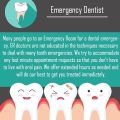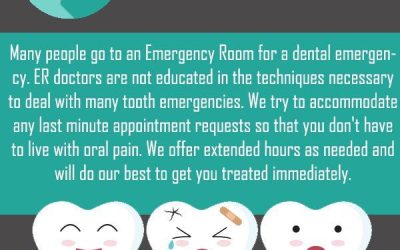When it comes to dental issues, it’s important to understand the difference between urgent and non-urgent situations. Urgent dental issues typically involve severe pain, persistent bleeding, or trauma to the teeth, requiring immediate attention from a dentist. On the other hand, non-urgent dental issues are those that may not cause significant pain or immediate harm but still require professional treatment to prevent further complications down the road. So, whether you’re dealing with a throbbing toothache or a minor chip in your tooth, knowing the distinction between urgent and non-urgent dental issues can help you prioritize your oral health needs effectively.
Understanding Dental Emergencies
When it comes to dental emergencies, it’s important to understand what exactly constitutes an emergency. A dental emergency refers to any dental problem that requires immediate attention and treatment to alleviate pain, save a tooth, or prevent further complications. These issues cannot wait for a regular dental appointment and require urgent care.
Common examples of dental emergencies
There are several common examples of dental emergencies that can occur. One of the most common is severe tooth pain. This type of pain may be caused by an abscess, a deep cavity, or an infected tooth. Facial swelling or an abscess in the mouth is another dental emergency that should not be ignored. The swelling could be a sign of infection and may require immediate treatment.
Importance of seeking immediate treatment
Seeking immediate treatment for a dental emergency is crucial for a number of reasons. First and foremost, it helps alleviate pain and discomfort. Dental emergencies often cause severe pain that can be debilitating, and seeking treatment promptly can provide relief. Additionally, immediate treatment can save a tooth that might otherwise be lost or damaged. Ignoring a dental emergency can lead to further complications and more extensive treatment in the future.
Potential consequences of delaying treatment
Delaying treatment for a dental emergency can have serious consequences. For example, an abscessed tooth can lead to a life-threatening infection if left untreated. Delaying treatment for a knocked-out tooth may result in permanent tooth loss. Ignoring severe pain or bleeding can lead to more extensive oral health issues and may require more invasive and costly treatments down the line. It is always better to seek immediate treatment at the first sign of a dental emergency.
Identifying Urgent Dental Issues
Knowing how to identify urgent dental issues is essential for seeking timely care and treatment. There are various signs and symptoms that indicate the need for urgent dental attention. One common sign is severe tooth pain that is persistent and does not subside with over-the-counter pain relievers. This can be an indication of an infection, deep cavity, or other serious dental problem.
Severe tooth pain
Severe tooth pain that is constant, throbbing, or sharp in nature should never be ignored. Toothaches often signal underlying issues such as tooth decay, gum disease, or an abscessed tooth. If you are experiencing severe tooth pain, it is important to seek immediate dental care to determine the cause and receive appropriate treatment.
Facial swelling or abscess
Facial swelling or the presence of an abscess in the mouth is another urgent dental issue that requires immediate attention. Swelling can be a sign of infection or inflammation and should not be overlooked. An abscess in the mouth is a collection of pus that forms due to a bacterial infection. It can cause severe pain, swelling, and even difficulty swallowing or breathing.
Bleeding or trauma to the mouth
Bleeding from the mouth or trauma to the mouth, such as a sports injury or accident, should not be taken lightly. Any excessive bleeding that cannot be controlled with gentle pressure should be evaluated by a dental professional. Trauma to the mouth can result in broken or dislodged teeth, fractured jawbones, or soft tissue injuries.
Loose or knocked-out tooth
If a tooth becomes loose or gets knocked out completely, it requires urgent dental attention. In the case of a knocked-out tooth, time is crucial for successful re-implantation. It is important to handle the tooth carefully by the crown and avoid touching the root. Rinse it gently with water and try to reinsert it into the socket if possible. If not, store the tooth in milk or saliva and seek immediate dental care.
Problems with breathing or swallowing
Any dental issue that affects your ability to breathe or swallow should be considered an emergency. It is important to seek immediate medical attention as these symptoms may indicate a severe infection or obstruction that requires urgent intervention.
When to Seek Urgent Dental Care
While all dental emergencies require immediate attention, there are certain situations that demand urgent dental care without delay. These situations often involve severe pain, excessive bleeding, infections, facial trauma, or the potential for damage to surrounding teeth and structures.
Excessive bleeding
If you are experiencing uncontrolled bleeding from the mouth, it is essential to seek immediate dental care. Excessive bleeding can be a sign of a serious injury or other underlying issue that needs to be addressed promptly.
Severe pain or discomfort
Severe dental pain or intense discomfort is a clear indication that urgent dental care is needed. Persistent and unrelenting pain can indicate an infection, abscess, nerve damage, or other serious dental issues.
Infections or abscesses
Dental infections or abscesses should not be ignored or left untreated. If left untreated, they can lead to severe pain, swelling, and even life-threatening complications. Seeking immediate dental care is crucial to prevent further spread of infection.
Facial trauma or injury
Any facial trauma or injury that affects the teeth, jaw, or surrounding structures should be treated as a dental emergency. This includes fractures or breaks in the jaw, dislodged teeth, and soft tissue injuries. Quick action can help minimize pain, prevent further damage, and facilitate effective treatment.
Potential damage to surrounding teeth or structures
Dental emergencies that have the potential to cause damage to surrounding teeth or structures require urgent care. For example, a loose tooth can cause neighboring teeth to become unstable if not addressed promptly. It is important to address these issues to prevent further complications and maintain oral health.
Non-urgent Dental Issues
Not all dental issues require immediate attention. Non-urgent dental issues refer to problems that do not cause severe pain, affect daily functioning, or pose an immediate risk to oral health. These issues can often be managed with self-care measures and do not require urgent dental care.
Definition of non-urgent dental issues
Non-urgent dental issues are typically those that do not require immediate attention or treatment. They may include minor toothaches, tooth sensitivity, chipped or cracked teeth, and the need for routine dental cleaning and check-ups.
Examples of non-urgent dental problems
Minor toothaches are a common non-urgent dental issue. These may be caused by minor tooth decay or sensitivity and can often be managed with over-the-counter pain relievers or desensitizing toothpaste. Tooth sensitivity, which is characterized by discomfort or pain when consuming hot, cold, or sweet food and drinks, is another non-urgent issue.
Sensitive teeth
Tooth sensitivity is not typically an emergency, but it can be bothersome. Avoiding triggers, such as hot or cold food and drinks, and using desensitizing toothpaste can help manage the sensitivity. It is still important to mention this issue to your dentist during your next regular check-up.
Chipped or cracked teeth
Chipped or cracked teeth can be a cause for concern, but they are often not considered a dental emergency unless they are causing severe pain or affecting daily functioning. In such cases, it is important to seek dental care promptly. For minor chips or cracks that do not cause pain, temporary solutions may be used until a dental visit can be arranged.
Dental cleaning and routine check-ups
Regular dental cleaning and routine check-ups are not considered urgent dental issues, but they are essential for maintaining good oral health. These preventive visits allow your dentist to detect any potential problems early on and treat them before they become emergencies.
Managing Non-urgent Dental Issues
Non-urgent dental issues can often be managed at home with self-care measures until you can schedule a dental appointment. There are several steps you can take to manage these issues and alleviate any discomfort.
Self-care measures for non-urgent issues
For minor toothaches or tooth sensitivity, over-the-counter pain relievers can provide temporary relief. Avoiding triggers, such as hot or cold food and drinks, can also help manage tooth sensitivity. Additionally, desensitizing toothpaste can be used to reduce sensitivity and discomfort.
Over-the-counter pain relievers
Over-the-counter pain relievers, such as acetaminophen or ibuprofen, can be used to manage minor toothaches or discomfort. Remember to follow the dosage instructions and consult with your dentist if the pain persists or worsens.
Avoiding triggers for tooth sensitivity
If you have sensitive teeth, it can be helpful to avoid triggers that worsen the sensitivity. This may include avoiding extremely hot or cold food and drinks, acidic or sugary foods, and using a soft-bristled toothbrush and gentle brushing technique.
Temporary solutions for damaged teeth
For minor chips or cracks in teeth, temporary solutions can be used until a dental visit can be arranged. This may include dental wax or temporary dental cement to protect the tooth and prevent further damage.
Importance of scheduling regular dental visits
Even if you have non-urgent dental issues, it is still important to schedule regular dental visits. Routine check-ups allow your dentist to monitor your oral health, detect any potential problems early on, and provide preventive care. Regular dental visits can help prevent non-urgent issues from becoming urgent ones.
Balancing Urgent and Non-urgent Dental Needs
When it comes to managing dental needs, it is important to find a balance between urgent and non-urgent issues. Determining the severity of dental issues and seeking professional advice is essential for effective management.
Determining the severity of dental issues
Determining the severity of dental issues can be challenging, especially for non-professionals. If you are unsure whether a dental issue is urgent or non-urgent, it is best to consult with a dental professional. They can help assess the situation and provide appropriate guidance.
Consultation with a dental professional
Consulting with a dental professional is crucial for determining the best course of action for your dental needs. They have the knowledge and expertise to evaluate the severity of your issues and recommend the appropriate treatment or intervention.
Evaluating potential risks and consequences
When weighing urgent and non-urgent dental needs, it is important to evaluate the potential risks and consequences of delaying treatment. Some non-urgent issues may worsen over time and require more extensive treatment if not addressed promptly. Understanding the potential risks can help prioritize your dental needs.
Prioritizing urgent issues while addressing non-urgent ones
While it is important to address all dental issues, prioritizing urgent needs is crucial. This may involve seeking immediate treatment for a dental emergency or severe pain, while scheduling routine dental visits to address non-urgent concerns.
Creating a dental treatment plan
To effectively manage both urgent and non-urgent dental needs, creating a dental treatment plan is beneficial. This plan outlines the necessary steps, appointments, and interventions required to address all dental issues in a timely manner. Your dentist can assist in creating a treatment plan tailored to your specific needs.
Preventing Dental Emergencies
Preventing dental emergencies is key to maintaining good oral health. By adopting healthy habits and taking preventive measures, you can reduce the likelihood of experiencing a dental emergency in the future.
Maintaining good oral hygiene practices
Maintaining good oral hygiene practices is essential for preventing dental emergencies. This includes brushing your teeth at least twice a day, flossing daily, and using mouthwash. Good oral hygiene helps prevent tooth decay, gum disease, and other dental issues that can lead to emergencies.
Regular brushing and flossing
Regular brushing and flossing effectively remove plaque and bacteria, preventing the buildup of harmful substances that can lead to dental emergencies. It is important to use a toothbrush with soft bristles and replace it every three to four months.
Proper nutrition and diet
A proper nutrition and diet are crucial for oral health. Avoiding sugary and acidic foods and drinks helps prevent tooth decay and enamel erosion. Opting for a well-balanced diet rich in fruits, vegetables, and calcium-rich foods can promote strong teeth and healthy gums.
Wearing protective mouthguards
If you engage in activities that pose a risk to your dental health, such as contact sports or certain recreational activities, wearing a protective mouthguard is essential. Mouthguards help cushion impacts and protect your teeth from being knocked out or damaged.
Avoiding harmful habits and behaviors
Certain habits and behaviors can increase the risk of dental emergencies. Avoiding chewing on ice, opening packages with your teeth, or using your teeth as tools can help prevent unnecessary damage. Additionally, avoiding tobacco use and excessive alcohol consumption contributes to good oral health.
Importance of Oral Health Education
Oral health education plays a vital role in preventing dental emergencies. Raising awareness about dental emergencies, promoting preventive dental care, and educating individuals about dental hygiene are all essential components of oral health education.
Raising awareness about dental emergencies
Many people are unaware of what constitutes a dental emergency and the importance of seeking immediate care. Raising awareness about dental emergencies can help individuals recognize the signs and symptoms and take appropriate action.
Promoting preventive dental care
Promoting preventive dental care is crucial for reducing the occurrence of dental emergencies. Education on the importance of regular dental visits, routine cleanings, and early intervention can help individuals maintain good oral health and prevent emergencies.
Educating individuals about dental hygiene
Educating individuals about dental hygiene is an integral part of oral health education. Teaching proper brushing and flossing techniques, the importance of a balanced diet, and the risks of harmful habits enables individuals to take control of their oral health and prevent emergencies.
Encouraging regular dental check-ups
Regular dental check-ups are essential for maintaining oral health and preventing emergencies. Encouraging individuals to schedule routine dental visits helps ensure that any potential issues are detected and addressed early on.
Access to Emergency Dental Services
Having access to emergency dental services is crucial in the event of a dental emergency. Understanding the options available and how to obtain emergency dental care is important for prompt treatment.
Availability of emergency dental care
Emergency dental care is generally available in various settings. Some dental practices have provisions for emergency appointments, while others may refer patients to specialized emergency dental clinics or hospital emergency departments.
Emergency dental clinics or services
Emergency dental clinics or services specialize in providing immediate care for dental emergencies. These facilities are equipped to handle a range of urgent dental issues, allowing for timely treatment and relief from pain or discomfort.
Contacting an emergency dentist
In the event of a dental emergency, it is important to know how to contact an emergency dentist. Keep emergency contact numbers easily accessible and make sure to explain the urgency of your situation when seeking an appointment.
Understanding insurance coverage for emergencies
Understanding your insurance coverage for dental emergencies is essential. Familiarize yourself with the details of your insurance plan, including any limitations or exclusions related to emergency dental care. This knowledge can help you make informed decisions and seek appropriate care without financial surprises.
Conclusion
Understanding the difference between urgent and non-urgent dental issues is critical for ensuring proper care and treatment. Knowing when to seek immediate care, prioritizing oral health, and taking preventive measures can help prevent dental emergencies and maintain good oral health. By balancing urgent and non-urgent dental needs and accessing emergency dental services when necessary, you can proactively manage your oral health and minimize the chances of experiencing a dental emergency. Remember to prioritize your oral health and seek professional advice when needed to keep your smile healthy and vibrant.











